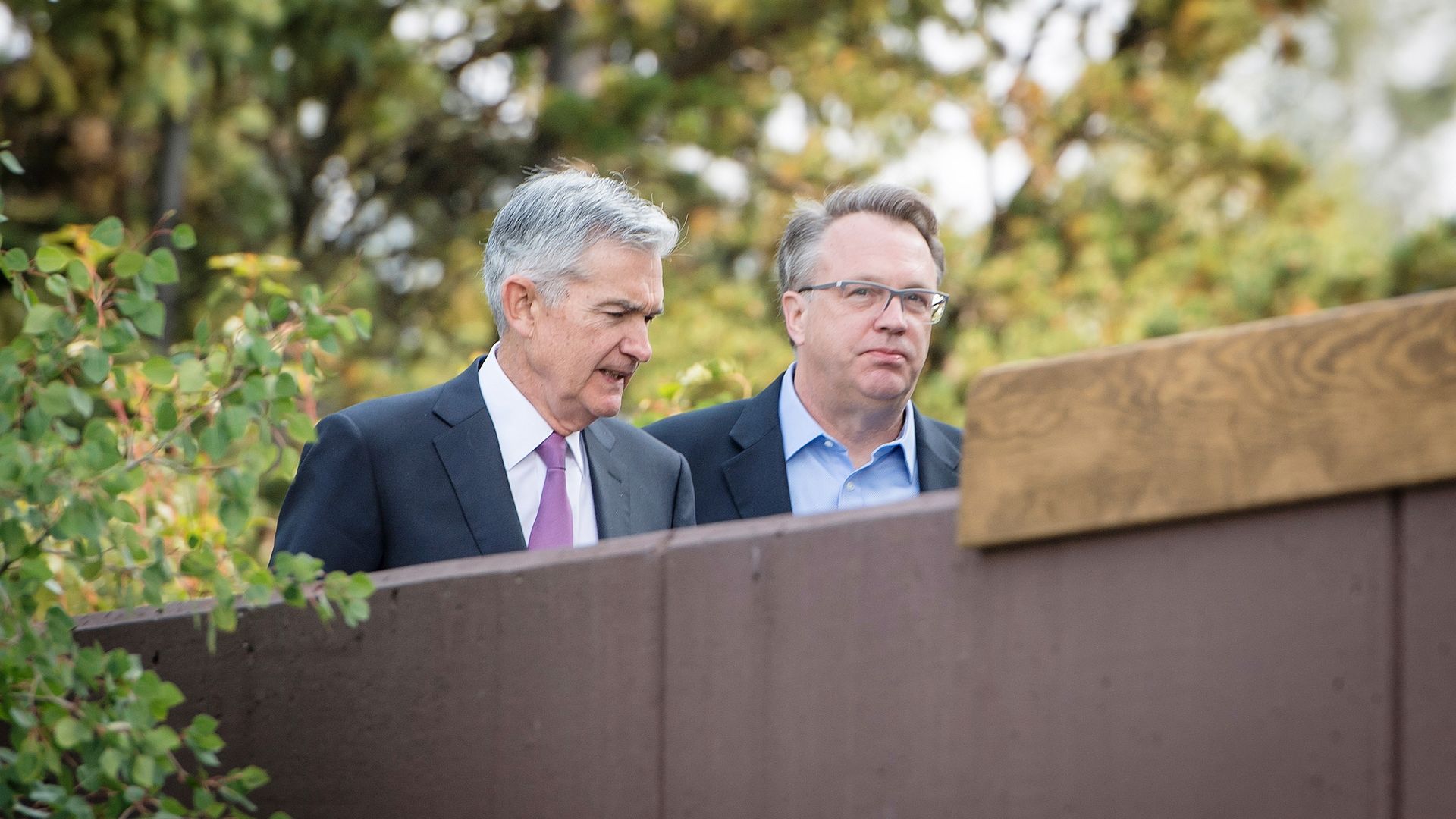The paradox in Powell's big Jackson Hole speech
Add Axios as your preferred source to
see more of our stories on Google.

Fed chair Jerome Powell and New York Fed president John Williams at the 2018 Jackson Hole symposium. Photo: David Paul Morris/Bloomberg via Getty Images
As Federal Reserve Chair Jerome Powell gives a much-awaited speech this morning, he faces a paradox: The more he expresses confidence that America's inflation crisis is starting to abate, the greater the risk it won't.
Driving the news: Powell is on tap to speak in Jackson Hole, Wyoming at 10am EDT, and the whole financial world will be watching (you can, too).
- The big question: How much higher might the Fed, in Powell's view, need to push interest rates to crush inflation?
The dilemma: Powell may hint that early signs of diminishing inflation pressure are evidence that prices will start to moderate on their own, enough for the Fed to cool its jet on interest rate increases.
- But that would fuel a surge in asset prices, which is counterproductive to Powell's purposes.
- Higher stocks and bond prices would tend to increase spending and borrowing in the economy, at a time the Fed's entire strategy is to restrain demand in order to bring inflation down.
State of play: In recent weeks, there has been some promising news that suggests inflation will largely dissipate on its own, even without the Fed needing to drive the economy into recession.
- Prices for gasoline and some other key commodities have been falling; supply disruptions are healing; and while the job market remains quite strong, workers' pay isn't accelerating in ways that would portend a 1970s-style upward spiral in wages and prices.
- The effects of past fiscal and monetary stimulus are starting to wear off: The American Rescue Plan is fading into history, and the effects of the Fed's rate increases are filtering through the economy (particularly in the form of a slowing housing market).
Yes, but: We've seen this movie before. In his Jackson Hole speech last year, Powell laid out his reasoning for thinking inflation wouldn't last. The speech contained the words "transitory" and "temporary," five times each.
- That summer's lull in inflation gave the Fed false confidence.
- When he gave that speech, the Consumer Price Index had risen 5.2% over the previous 12 months. That number is now 8.5%.
In effect, Powell and the Fed are now in credibility-rebuilding mode, which means that even if their best guess is that inflation will come down on its own, they can't take any chances.
What they're saying: "It is one thing for the Fed to get inflation wrong. It is another for them not to take their price stability mandate seriously," said Tom Graff, the head of investments on Facet Wealth, on Twitter.
- "To use a dating analogy, this is the difference [between] forgetting your anniversary vs. acting like the anniversary is unimportant."
The bottom line: Powell and the Fed don't want to cause a recession if they don't have to. But after their mistaken inflation call last year, a whatever-it-takes mentality is more important than usual.
